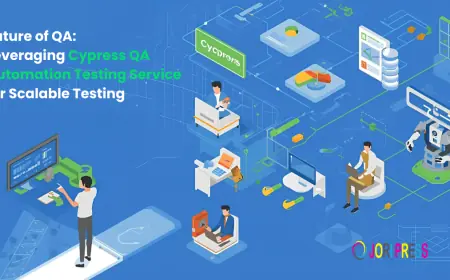The Rise of AI in Legal Research: What Law Students Need to Know
Discover how AI transforms legal research, what law students must know about ethics and tech literacy, and why these skills matter for future lawyers.

This is because the artificial intelligence (AI) infiltration into our daily legal affairs is changing everything in the legal field as we may never have known it before. Legal research may be one of the most substantive areas impacted, which is part of legal education and the practice of law. Law students will not be affected by this change in learning, thinking, and ultimately work in the legal system as a mere fad, but as a change within the core of the system.
The AI-based tools are transforming the legal information access, analysis, and application processes. Westlaw Edge, Lexis+, and ROSS Intelligence are digitizing the previously difficult and time-consuming tasks that formerly took hours, days at a stretch, and give legal professionals time to make more informed and quick decisions. It is imperative to learn that, in addition to learning how these applications work, law students need to know how to ethically and efficiently use these applications as they continue to find their way into the legal ecosystem.
How AI Is Revolutionizing Legal Research
Legal research traditionally required sifting through volumes of case law, statutes, and commentary. While databases like Westlaw and LexisNexis digitized this process, it was still labor-intensive. AI takes this a step further by using natural language processing (NLP), machine learning, and predictive analytics to understand queries in plain language and deliver highly relevant results.
As law schools begin integrating AI platforms into research modules, students must become proficient not only in using them but also in understanding their limitations. Many learners, unfamiliar with both legal reasoning and AI algorithms, turn to a professional paper helper to guide their early research papers or assignments on legal technology. These helpers can clarify complex intersections between law and machine learning, making it easier for students to adapt.
Why Law Students Must Embrace Technological Literacy
Legal employers today are looking for more than just a knowledge of torts or constitutional law—they want tech-savvy candidates who can work efficiently in digital environments. Knowing how to utilize AI-driven legal tools is becoming a basic expectation.
Law students who invest time in learning these systems gain a competitive edge. They are better prepared for internships, clerkships, and entry-level positions where time-saving tools are becoming the norm. These students also find it easier to tackle tech-driven legal writing tasks, which are increasingly assigned in law school courses.
However, gaining fluency in this area requires time, practice, and often supplemental support. Many students who feel overwhelmed by the pace of these changes seek law assignment help not as a shortcut, but as a means to catch up. The right assistance can make AI more approachable and legal writing more precise—an essential pairing in the modern classroom.
Ethical Considerations in AI-Assisted Legal Research
While AI tools offer speed and convenience, they also raise ethical concerns, especially in legal practice. Relying too heavily on predictive algorithms or citation suggestions without human oversight can lead to critical errors. AI might misinterpret the nuance of a case or fail to catch a legal precedent that could drastically alter an argument.
Law students need to be aware of these pitfalls. Legal education still emphasizes critical thinking, human reasoning, and ethical judgment—skills that AI cannot replace. The best use of AI comes when it supports rather than replaces human intellect.
To explore these ethical issues in depth, students are often tasked with writing papers on AI's influence on due process, bias in algorithmic decision-making, or the changing role of paralegals and junior associates. These are complex topics, and using a professional paper helper can aid in developing structured arguments, reviewing legal sources, and citing correctly within the context of emerging technology debates.
The Future of Legal Research Using AI
In the past, one had to parse through reams of case law, statutes, and comments in order to perform legal research. Although this was streamlined by the use of databases such as Westlaw and LexisNexis, it was a tedious process. AI goes a step further and interprets queries on natural language, machine learning, and predictive analytics to achieve a high level of relevancy of results.
AI tools currently allow making patterns in case law, estimating the path of judicial decisions, and even recommending precedents relevant to a user that/they might have overlooked. This makes research fast and more accurate, since being more accurate is very important in the legal field, where precision can either start or end a case.
Training to Become a Law and Technology Professional
Lawyers with a combination of knowledge of both the legal doctrine and the technologies that are changing the practice of law will be the future of the law practice. AI will not replace lawyers; it will only help us to increase the efficiency of work, the quality of research, and insights in creating a strategy. As the law students realize this and act fast to adapt, they will become more prepared for the labour market.
Law schools now provide programmes combining legal study with data science, ethics, and legal A professional paper helper is one of the support systems that can support this process. They provide transparency, academic support, and tutelage through a period when the model of legal education is experiencing significant change. Together with the hard work and the desire to learn new things, these materials enable students to learn enough about AI not only to comprehend how it works but also to practice it ethically whenever they can use it in the workplace in the future.
Conclusion
Rise in AI in legal studies is an inflection point in the study and practice of law. To the law students today, survival makes this change mandatory and not an option. Being able to consume large amounts of information, legal research may be performed more rapidly and less critically. The individuals capable of striking a middle between having an understanding of the technology and critical legal thinking will set the precedent.
Such resources as a law assignment help or the guidance provided by a professional paper helper could help students who have to find their way in this new landscape. When utilised strategically and ethically, students can achieve mastery of complicated issues and high-quality legal writing in the growing digital academic landscape when these tools are used.
You do not need to know why AI is relevant to law because you need to be ready to enter the field that will be awaiting you once you become a lawyer.
What's Your Reaction?
 Like
0
Like
0
 Dislike
0
Dislike
0
 Love
0
Love
0
 Funny
0
Funny
0
 Angry
0
Angry
0
 Sad
0
Sad
0
 Wow
0
Wow
0


















































